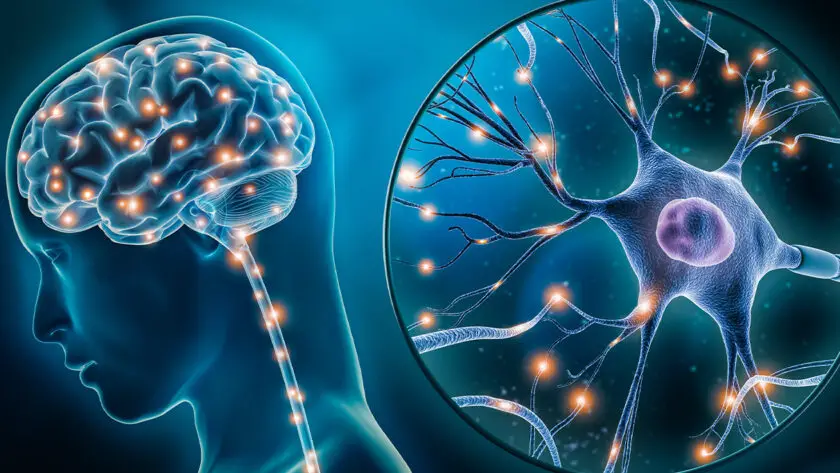The Michael J Fox Foundation has made a groundbreaking announcement, unveiling a new scientific paper that confirms the discovery of a highly accurate biomarker for Parkinson’s disease. This significant revelation has the potential to detect the presence of the disease even before standard symptoms become apparent. The identification of this biomarker represents a major turning point in our understanding of Parkinson’s at a biological level, revolutionizing the diagnosis process and opening up possibilities for potential treatments.
This remarkable study was published by the Parkinson’s Progression Markers Initiative (PPMI), a renowned organization at the forefront of Parkinson’s research. The paper highlights the potential applications of the new test for early diagnosis, as well as its ability to identify specific molecular subtypes, leading to targeted treatment approaches.
Dr. Kenneth Marek, the Principal Investigator of PPMI and president of the Institute for Neurodegenerative Disorders, hailed this event as a significant advancement into a new biological era for Parkinson’s research.
The newly developed test, known as the alpha-synuclein seed amplification assay (αSyn-SAA), focuses on a specific biomarker that indicates synuclein pathology. Alpha-synuclein is a protein found in neurons, and in certain individuals, it undergoes misfolding, resulting in the formation of damaged protein clusters known as Lewy bodies. While the direct link between Lewy bodies and Parkinson’s is not fully understood, they serve as a crucial indicator of the disease.
The αSyn-SAA test was developed within the framework of the PPMI and validated using patient data from the initiative. The research team conducted the test on a diverse group of 1,100 individuals, including those with known risk factors, individuals with and without risk genes, and more.
The results showed an impressive accuracy rate of 90% in individuals with typical Parkinson’s pathology. This accuracy rate increased even further for individuals with olfactory deficits and sporadic Parkinson’s without a known genetic mutation. In individuals not diagnosed with Parkinson’s, the assay demonstrated a 90% positive rate if they exhibited loss of smell or REM sleep behavior disorder, both of which are closely associated with the disease.
One of the intriguing findings of this study was that the assay could detect synuclein pathology even before dopamine loss, which is one of the earliest available screenings for Parkinson’s through DAT imaging. Therefore, when used in conjunction with other tests, the assay has the potential to widen the window for preventive measures.
While the αSyn-SAA test shows considerable promise, its effectiveness in detecting Parkinson’s before the onset of symptoms is yet to be fully determined. The study reported a significant decrease in effectiveness when individuals did not experience a loss of smell, and an even more pronounced decrease when they carried a specific genetic variant. Consequently, it may not be entirely reliable as a standalone indicator.
To further validate the test, the research team plans to establish a longitudinal cohort of approximately 2,000 people who have not been diagnosed with Parkinson’s. However, these studies require substantial time and resources. Nevertheless, if there is any group capable of undertaking such an ambitious project, it is the PPMI team.
Michael J Fox, both a Parkinson’s patient and an advocate for the Foundation, expressed his heartfelt gratitude for this breakthrough and acknowledged the relentless efforts of the researchers, study participants, and funders.
The study has been published in The Lancet Neurology, and detailed information about the research can be found on their website.
According to the latest statistics:
- Nearly 10 million people worldwide are living with Parkinson’s disease.
- The risk of Parkinson’s increases with age, but an estimated 4% of people with Parkinson’s are diagnosed before the age of 50.
- Approximately 60,000 Americans are diagnosed with Parkinson’s disease each year.
Understanding Parkinson’s: Symptoms & Prognosis:
Parkinson’s disease is a neurodegenerative disorder that primarily affects dopamine-producing neurons in the brain. The key signs and symptoms of Parkinson’s disease can be remembered using the acronym TRAP: Tremor, Rigidity, Akinesia, and Postural instability. These symptoms typically manifest as tremors that start in a limb, often the hand or fingers, stiffness of the limbs and trunk, reduced or slow movements, and impaired balance and coordination.
In addition to these motor symptoms, Parkinson’s disease can also cause non-motor symptoms such as cognitive changes (memory difficulties, slow thinking), mood disorders (depression, anxiety), sleep problems, changes in voice volume or speech clarity, and difficulty swallowing.
Currently, the prognosis of Parkinson’s disease varies widely. While the disease is progressive and worsens over time, the speed and nature of its progression differ among patients. The most important prognostic factor is the age of onset. Early-onset Parkinson’s tends to progress more slowly, while later-onset Parkinson’s may come with a more rapid decline in functionality.
Despite the challenges posed by Parkinson’s disease, advances in medical treatments and comprehensive management strategies have enabled many people with Parkinson’s to lead fulfilling, productive lives.
The validation of the αSyn-SAA test presents a new horizon for early detection and potentially slowing down the progression of the disease. This breakthrough, coupled with the unwavering commitment of researchers, brings us a step closer to making a cure for Parkinson’s inevitable.
For further details about this breakthrough in the search for a Parkinson’s biomarker, refer to the Michael J Fox Foundation’s announcement.
Note: The information provided in this article is based on the recent findings and the research available at the time of writing. It is advisable to consult medical professionals or refer to reputable sources for the latest information on Parkinson’s disease.
Parkinson’s Symptoms Worth Paying Attention To:
- Loss Of Smell
- Irregular Sleep Behaviors (Specifically associated with REM sleep)
- Low Dopamine Levels (This is your motivation hormone)
Recommended Reading:
Shocking New Research Shows Why Dancing is The #1 Form Of Movement For Longevity, Brain Health & More!
Scientists Discover Top Three Herbs That Fight Dementia, Alzheimers And More! (They Prevent Any Neurodegenerative Disease)
Recommended Products:
REM Sleep by HealthyCell. Click here to visit.
Use the discount code: healthywildfree for 10% off!
I recommend getting Mucuna powder from Omica Organics to increase L-Dopa production which is a precursor to the production of Dopamine. You can get 10% off your order by using the discount code: VFDF7M at checkout. Click here to visit Omica Organics mucuna powder extract.
I also recommend supplementing ketones from Trubrain Ketones for optimizing brain health and function. Click here to visit Trubrain.com. Ketones are molecules that your liver produces to enhance mitochondrial function.





